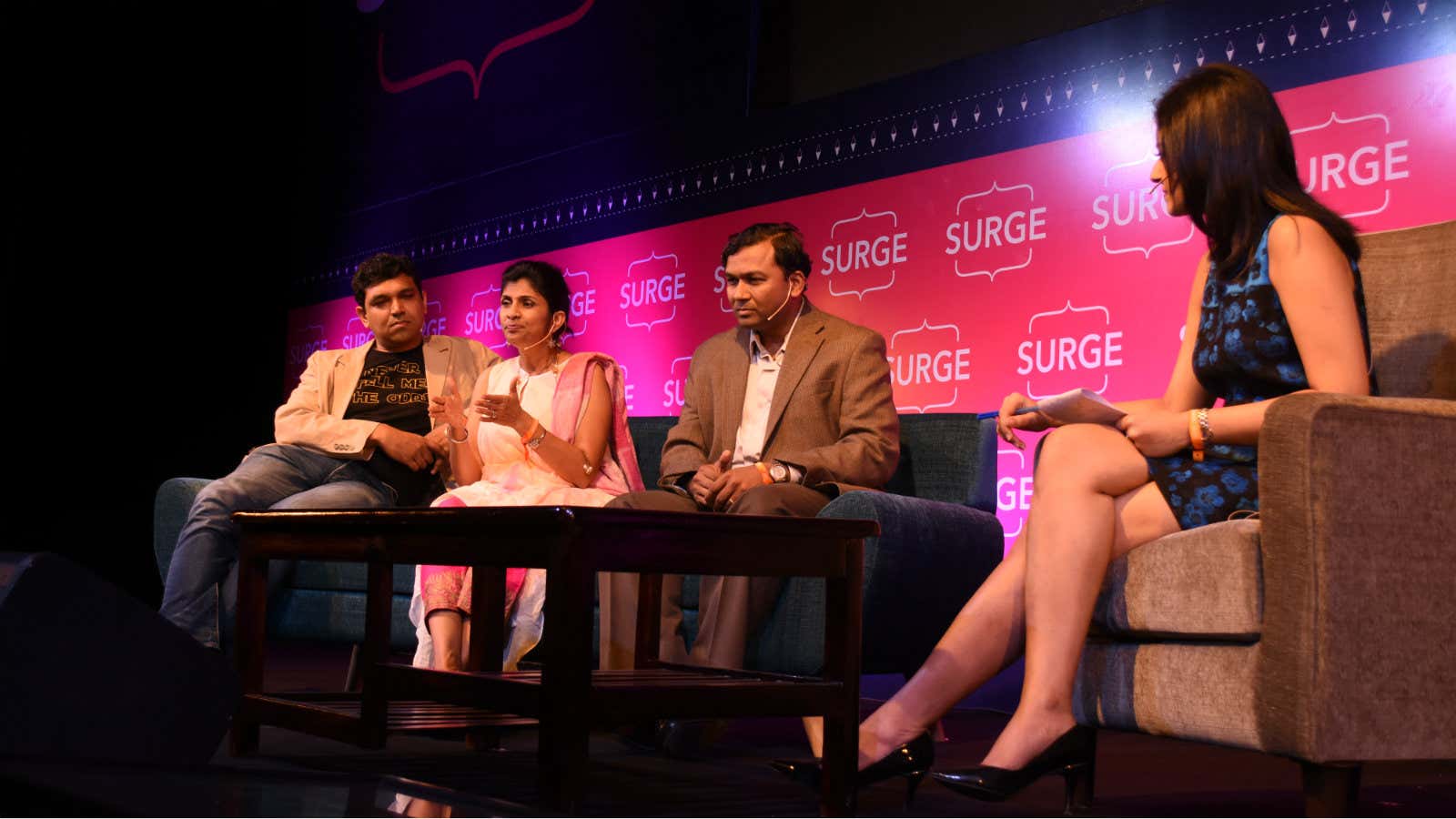In December, a friend who is also a public relations executive asked me if I could suggest the names of a few women entrepreneurs to speak at an event on India’s technology startups. “The client wants to include a discussion about women and entrepreneurship,” he said.
Since the event was only a few days away, I asked him to invite other women speakers at the event for this panel. But that wasn’t an option.
“We don’t have any women speakers so far,” he said. “That’s why we want to include a women-only panel.”
I should have guessed. The all-female panel was, as they often are, an afterthought.
Women are a rare sight at technology events in India. Unless there is a discussion on ”managing family with work” or “how the industry accepts women.”
Questions on innovation and business are usually reserved for their male counterparts.
For instance, in January, the Indian government hosted its first-ever “Startup India” event and invited five women entrepreneurs for a 30-minute panel called ”Celebrating women: Stories of innovative women entrepreneurs.” The discussion during this session revolved around the advantages women bring to the startup industry, and how women should deal with questions about marriage.
Even though they run million-dollar companies, there was hardly any mention of the professional achievements of these entrepreneurs. The panel during the session included:
There were 14 other panels during the day. And all together, they included less than five women.
“I frequently get called to tech events and all they end up talking about is my gender. It happens all the time to me and all other women entrepreneurs. It is very irritating and unfair,” said Chahal, founder and CEO of Sheroes. “Nobody calls women to discuss business or technology, it’s almost as if we don’t know anything about it.”
There is no denying that women entrepreneurs in patriarchal India face formidable challenges because of their gender. Working women are often expected to prioritise family over career and that spooks investors.
Consider the fact that only nine out of every 100 entrepreneurs in the country are women.
The Indian startup community has had several successful women entrepreneurs building multi-million dollar tech companies. For example, Zipdial, the first company Twitter acquired in India—reportedly for $30 million—was co-founded by Valerie Wagoner. India’s leading lingerie retail portal, worth over $100 million, was founded and is run by Richa Kar, and a leading apparel portal that clocks GMV of over Rs200 crore was founded by Suchi Mukherjee.
Yet, when public discussions by these entrepreneurs are constantly restricted to work-life balance, their business acumen and technical skills get devalued.
Missing women
It’s not just the stage where women are missing. Even hackathons or press conferences hardly see any women participants.
In February, Bengaluru hosted Surge 2016, a massive two-day technology conference organised by Dublin-based Web Summit. The organisers gave away several free tickets to women entrepreneurs for the much sought-after event. Yet, only 36% of the attendees were women.
To get more of them, these events need to be completely re-structured.
“Our events are the only ones where men’s bathrooms are converted to women’s. At most other events, it’s hard to find a women’s bathroom,” said Geetha Kannan, managing director of Anita Borg Institute (ABI) in India, which organises the Grace Hopper event, bringing together women in technology to talk about a wide range of subjects— from computing to marketing.
ABI even involves women at all stages of organising the event, helping them pick topics that women would be interested in listening to, rather than the stereotypical ones, said Kannan.
Most women stay away from tech events due to guilt, Kannan added. “Probably women feel that they should either be in the office doing some work or at home with their family. In comparison to men, women see very less merit in networking or investing in their professions,” Kannan said.
In a recently published book on leadership lessons for women, Own it, author Aparna Jain wrote about “the syndrome of women staying in the background.” In one of the chapters, she lists eight ways women can redefine networking and not buy into the male definition of the word.
There is a need to see women as leaders and not as “women leaders,” said Chahal of Sheroes. “When people think of women they still think of the age-old gender roles and that overtakes everything else,” she said.
We welcome your comments at ideas.india@qz.com.
